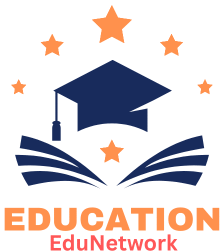Educational consulting is a growing field as more and more institutions, including schools, businesses, and families, seek expert guidance on how to deal with complex educational systems and improve student achievement. If you’re considering a career in this growing field, it’s important to have a good grasp of the role, required skills, job opportunities, and career trajectory. This comprehensive book will provide you all the knowledge you need to make an informed decision about becoming an educational consultant.
Exactly What Is an Educational Consultant?
Educational consultants are experts in the field who advise various stakeholders, including students, schools, and organisations, on matters related to education. Personalised guidance on academic programs, learning strategies, curriculum development, college applications, and career preparation is their primary goal. Some of the areas that educational consultants may focus on include technology in education, special education, K-12 education, and higher education.
Universities, school districts, and consulting firms are common employers of educational consultants. Customers benefit from their expertise because it helps them make better decisions, which in turn improves their academic experiences and their academic accomplishments.
When Should You Consider a Career in Educational Consulting?
Educators, counsellors, and education lovers are drawn to educational consulting employment due to the many advantages they offer:
-
Consultants’ work has a direct influence on the growth of institutions and the academic success of students.
-
Opportunities Abound: Work with a wide variety of clients, including private companies, nonprofits, families, and educational institutions.
-
Freelancing or having a flexible schedule is a perk that many educational consultants enjoy.
-
The need for expert help is on the rise due to rising levels of competition in the education sector and adapting student needs.
-
Continuous learning and improvement in one’s profession via means such as workshops, certificates, and personal networks.
Critical Responsibilities of Educational Consultants
By familiarising yourself with the main responsibilities of educational consultants, you may determine whether this career path aligns with your interests and skills:
-
Find out what each kid needs, what they’re good at, and where they’re having trouble using things like interviews, quizzes, and observations.
-
Make personalised lesson plans that include options for courses, extracurriculars, and tutoring methods.
-
Help kids and their families with college application tasks such as writing essays, preparing for interviews, and obtaining financial help.
-
Provide schools with guidance on how to incorporate technology, meet accrediting standards, and develop curricula.
-
It is important for administrators and teachers to participate in professional development opportunities.
-
Workshops on topics including job exploration, study skills, and learning disabilities should be organised.
-
Always keep yourself updated on the latest educational trends, legislation, and research so you can provide solutions that are backed by facts.
Educational Consultants: What They Need and How to Get Started
Most educational consultant professions need a strong academic degree in education or a closely related field. Common forms of academic certification include:
-
Usually a bachelor’s degree in education, psychology, counselling, or a related field.
-
A Master of Education (M.Ed.), certification in school counselling, or credentials in educational leadership are common among consultants.
-
Certifications in areas like college guidance and special education may boost credibility.
Work History
Teaching, counselling, or administrative experience might pave the way to a career in educational consulting. Expert consultants have a better grasp of classroom dynamics and student needs because of their own experience.
Capabilities and Abilities
The following skills are often held by successful educational counsellors:
-
Proficient in both written and spoken communication
-
Ability to analyse and solve problems
-
Extensive familiarity with educational institutions and procedures
-
Patience, empathy
-
Ability to plan and execute projects
-
Ability to work alone as well as in a team
Educational Consultant Occupations
A consultant’s focus and clientele could dictate the specifics of their educational consulting career. A typical area of expertise might include:
1. Expert in K-12 Education
Elementary, middle, and high school students and their families make up the bulk of these consultants’ clientele. Academic preparation, school selection, and special education aid might all be areas where they could be of assistance.
2. Working as an Admissions Counsellor
Helping kids prepare for college applications, standardised tests (such the SAT or ACT), and potential financial aid packages is the speciality of these advisors.
3. Special Education Consultant
By advising families and schools on how to support students with disabilities or learning challenges, these experts help ensure compliance with legal duties such the Individuals with Disabilities Education Act (IDEA).
4. Curriculum Designer
In order to help schools satisfy educational standards, improve lesson plans, and integrate technology, these consultants help with curriculum building and instructional design.
5. Expert in Educational Technology Consultation
Advice on digital tools, e-learning platforms, and technology integration will be offered in this role, with the goal of improving teaching and learning.
Jobs, Salary, and Benefits for Educational Consultants
Educational consultants are expected to see a rise in demand due to the increasing complexity of education and the focus on personalised learning. Employment opportunities in education consulting and counselling are expected to grow by over 8% in the next decade, according to the U.S. Bureau of Labour Statistics.
Educational consultants’ salaries are influenced by factors such as their area of expertise, years of experience, and the location in which they work.
-
Salaries for entry-level consultants typically range from $45,000 to $60,000.
-
Consultants with years of experience and advanced certifications might earn $100,000 or more.
-
The amount of money that independent consultants make might vary greatly depending on their clients and the services they provide.
A Beginner’s Guide to Becoming an Educational Consultant
Step 1: Obtain Relevant Experience and Education
You should start by getting a bachelor’s degree in education or a related field. Find a job that allows you to get experience in administration, counselling, or education.
Step 2: Seek out Degrees or Advanced Certifications
If you wish to specialise in consulting, you might think about obtaining a master’s degree or professional qualifications in the field.
Step 3: Build Your Credibility and Connect with Others
Establish relationships with organisations such as the Independent Educational Consultants Association (IECA), as well as with schools, businesses, and trade organisations.
Step 4: Draft a Company Plan
If you’re starting out on your own, plan out your services, who you’ll be selling to, how you’ll promote them, and how much you’ll charge.
Step 5: Market Your Products and Services
Websites, seminars, social media, and referrals from satisfied clients are all great ways to bring in new business.
Challenges Faced by Educational Consultants
Educational consulting is a rewarding field, but it is not without its challenges, such as:
-
Surviving the ever-changing educational landscape of legislation and technologies.
-
Building a devoted clientele in a very competitive market.
-
Handling a variety of consumer expectations.
-
Finding a happy medium between unpredictable workloads and the freedom to have a life outside of work.
How to Be a Successful Educational Consultant: Expert Advice
-
Adapt to the ever-evolving landscape of educational research and policy.
-
Improving your communication and counselling skills should be a continuous priority.
-
Strive to build trust and rapport with your customers.
-
Differentiate yourself from the crowd by being an expert in one area.
-
Streamline processes and provide better customer service with the help of technology.
-
Seek out peer assistance and advice via professional networks.
In Conclusion
Becoming an educational consultant is a dynamic and meaningful way to contribute to the education sector. Consultants play a crucial role in assessing academic success by assisting with curriculum development, providing guidance to families with special education needs, and advising students on their college choices. If you have the right combination of education, work experience, and personality traits, becoming an educational consultant could be a fulfilling career choice.
If you like working with people, have a passion for education, and are good at finding solutions to problems, then being an educational consultant can be a great fit for you.
